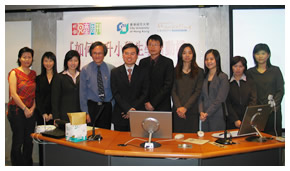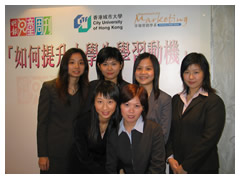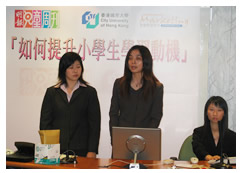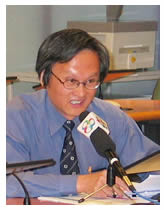More autonomy, higher motivation to learn
Karen Lai
l Ninety-four percent of parents were “willing” or “very willing” to participate in recreational activities with their children, aiming to develop a better parent-child relationship. Eighty-three percent of parents were willing to devote half a day or a whole day to these activities. They ranked “local touristic learning tours” as the most popular activity and “expedition outings” as the second most popular.
l Nearly 50% of parents are willing to spend more that $500 per month on their children’s recreational activities, and 52% are willing to spend more than $1,000 per month on courses to develop their children’s all-round talents.
l Divergence between parents’ expectations and children’s learning orientations
l For multi-intelligence development, parents ranked “language proficiency” as the most important aspect of learning, followed by “self-understanding”, and “interpersonal skills”. “Musical/rhythmic intelligence” and “visual-spatial intelligence” got a lower ranking.
l For academic subjects, parents also tended to put “language proficiency” as their prime concern, whereas “civic education” and “sex education” were at the bottom of the list.
l However, regarding the activities youngsters tend to do most, “watching TV” and “playing computer games” were their favorites. During holidays, they preferred outdoor activities like playing at public parks/playgrounds.
l Parents decide on children’s magazines, snacks and drinks
l Of the top five consumer products, parents selected which magazines, snacks, and drinks to purchase for their children. The children only made decisions on “stationeries” and “toys”.
l However, if there were a number of magazines on the list, over 60% of parents would let their children to decide which one to buy.
A dedicated social work scholar and a winner of CityU’s Teaching Excellence Award 1993/94, Mr Chan suggested that parents abandon traditional standards of judging a child’s talents. Instead, parents ought to appreciate their children’s gifts such as hand-eye coordination, which is very useful in the digital world of today. Parents should also communicate more with their children before enrolling them in courses. He encouraged parents to introduce their children to interactive courses such as creative drama workshops and digital multimedia courses, so that children can further develop their strengths in IT and computer animation.
“We are very glad to see a group of enthusiastic students and teaching staff devoting so much effort on the study,” said Mr Eric Mak, Managing Editor of City Children’s Weekly. “The findings will be beneficial to researchers, teachers, parents and children courseware developers.” The survey is an extension of the Advanced Marketing Seminar course assignment of last semester. Led by Mr Alex Tham, Instructor of the Department of Marketing, students found the course to be a good training ground in which to apply their business knowledge, creativity and research skills in real life business settings. Introduced in 1995, the course has developed a list of renowned client companies such as Delifrance, Amoy Foods Ltd and the Pricerite Group.



